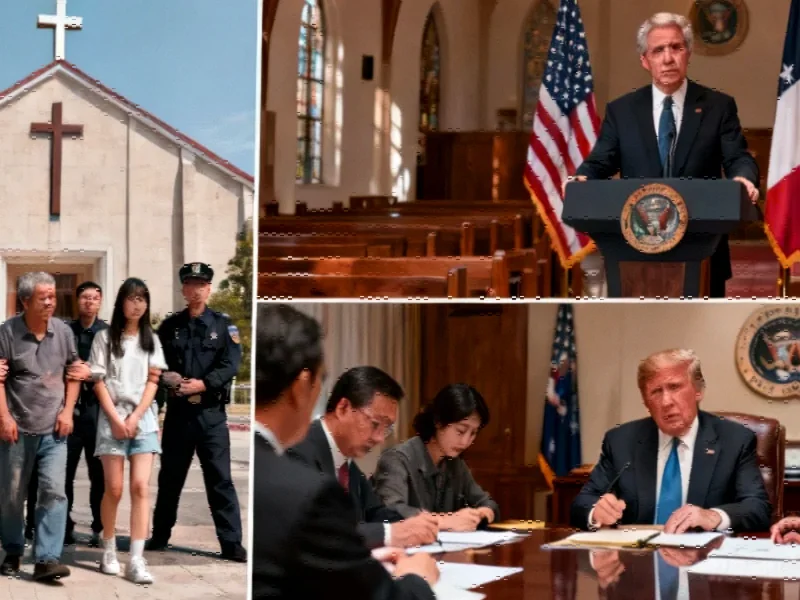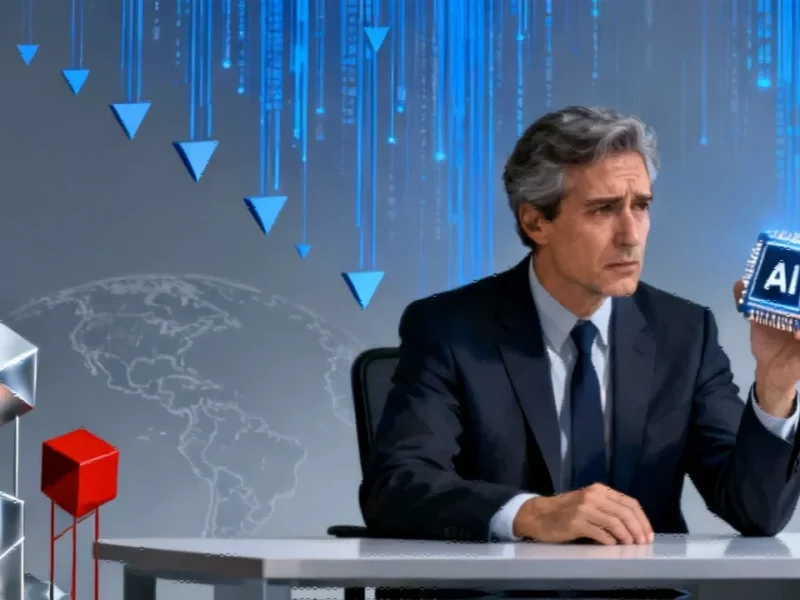Church Crackdown Sparks Diplomatic Tensions
Chinese authorities have detained more than 20 members of Zion Church, one of China’s largest unregistered Christian networks, according to reports from church members and family. The detentions include the church’s founder and chief pastor Ezra Jin, also known as Jin Mingri, sources indicate.
The crackdown has triggered a swift response from US Secretary of State Marco Rubio, who called for the immediate release of detained church members. “This action further demonstrates how the Chinese Communist Party exercises hostility towards Christians who reject Party interference in their faith,” Rubio stated, according to official communications.
Escalating Religious Controls
Analysts suggest Beijing’s latest action represents an escalation of a years-long campaign to eliminate large religious networks that operate outside state supervision. Many of these groups expanded their reach through online platforms during the COVID-19 pandemic, circumventing traditional restrictions on unregistered worship.
Last month, Chinese President Xi Jinping emphasized that religions should “further adapt to the Chinese context” while calling for “improved policies and frameworks” and “stricter law enforcement.” Authorities subsequently released guidelines restricting online preaching to officially sanctioned churches and temples only.
Historical Context of Religious Practice
While religion was severely restricted in China under Mao Zedong, religious practice has grown significantly since his death in 1976. The Chinese government recognizes only five religions—Buddhism, Taoism, Catholicism, Protestantism, and Islam—and requires all religious groups to belong to state-approved associations.
The number of Christians in China is difficult to accurately estimate, according to researchers, because many believers participate in unregistered house churches not endorsed by the state. A 2021 survey by the Pew Research Center found approximately 1 percent of Chinese adults identified with Christianity, though many practitioners blend Christian beliefs with elements of other religions.
Pattern of Religious Suppression
This is not the first time Chinese authorities have targeted large unregistered churches. In 2018, China detained 100 members of the Early Rain Covenant Church, including its leader Wang Yi, an open critic of Xi Jinping. Authorities also shuttered the Zion Church’s Beijing location after it refused to install surveillance cameras.
According to reports from Jin’s daughter, Grace Jin Drexel, Ezra Jin was previously detained in 2018 after returning from the United States and was banned from leaving the country. The crackdown forced Zion Church to adopt a more decentralized, online model that expanded significantly during the pandemic, eventually reaching more than 40 cities and over 10,000 followers.
Geopolitical Dimensions
Some experts suggest the timing of the detentions carries geopolitical significance. Francesco Sisci, a Rome-based expert on Christianity in China, argued that the action sends a message to the United States. Grace Jin Drexel works for the US Senate, while her husband Bill Drexel is employed by the Washington-based Hudson Institute.
“China is putting a lot of pressure on the United States,” Sisci said, noting the detentions coincided with Beijing’s announcement of “all-out” measures to control rare earth metal supplies. “They just picked this one,” he added, referring to the Zion Church among China’s many Protestant congregations.
Bill Drexel expressed concern that Beijing may view the detained church members as “leverage” in US-China relations. Meanwhile, industry developments in technology and global markets continue to evolve, with recent reports highlighting related innovations in artificial intelligence facing supply chain challenges.
Official Responses and Broader Implications
China’s Ministry of Public Security has not responded to requests for comment on the detentions. The foreign ministry issued a statement asserting that China “safeguards citizens’ freedom of religious belief” and “firmly opposes the US interfering in China’s internal affairs with so-called religious issues.”
Ian Johnson, author of “The Souls of China: The Return of Religion After Mao,” described the crackdown as signaling “the end of an era of huge growth in Protestantism.” He suggested the current administration appears willing to permit small-scale private worship but determined to prevent “civil society type structures” from taking root.
The situation reflects broader industry developments in international relations and comes amid other significant global policy discussions, including market trends in education finance and taxation. As diplomatic tensions continue, observers note that religious freedom remains a persistent point of contention between China and Western nations, with historical precedents dating back to the Jin dynasty era of Chinese history.
This article aggregates information from publicly available sources. All trademarks and copyrights belong to their respective owners.
Note: Featured image is for illustrative purposes only and does not represent any specific product, service, or entity mentioned in this article.



